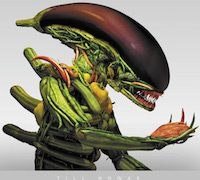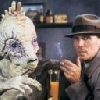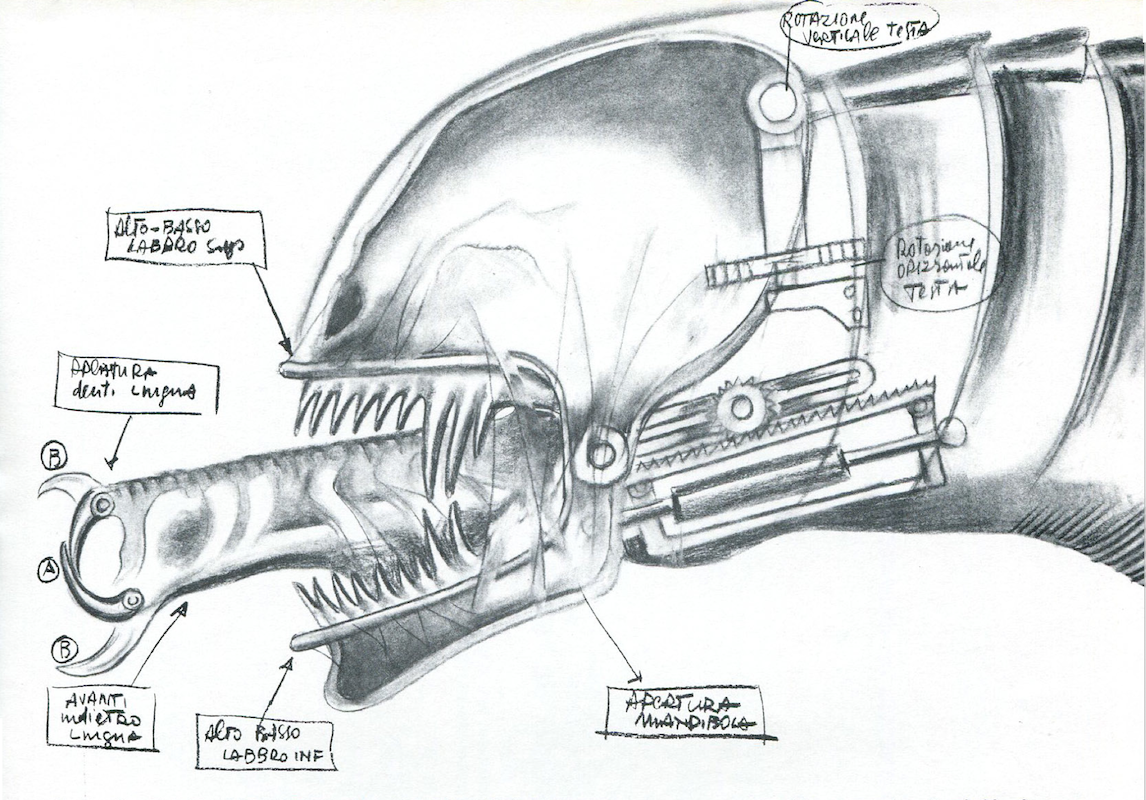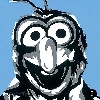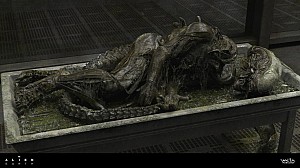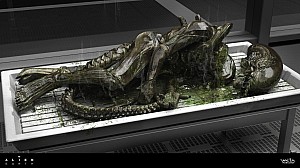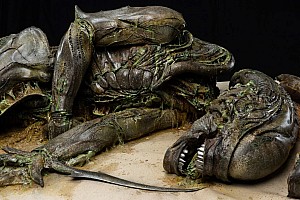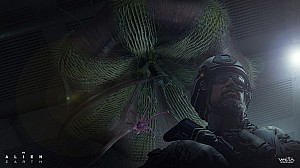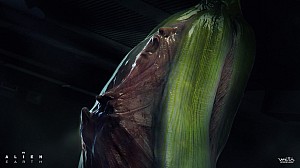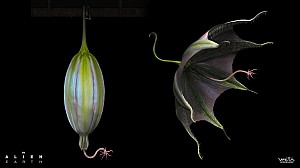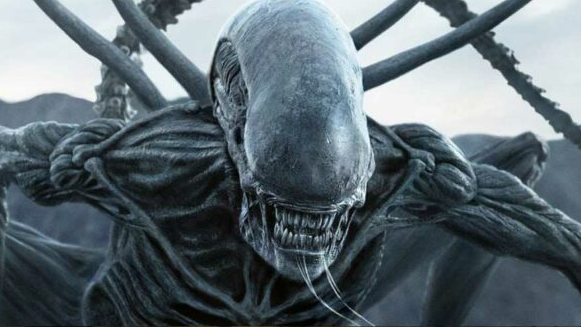When it came to giving the adult alien function, it was clear that the production team needed someone with not only considerable sculpting skills but someone who has the technical ability to breathe life into a lifeless creation. Once again, Gordon Carrol turned to Carlo Rambaldi, who was busy with another production when first approached to work on Alien. Even though he was still committed to other projects Rambaldi had agreed to work on the alien, between projects, and was given a copy of the script along with copies of Giger's artwork. Based on the script and Giger's artwork Rambaldi began to work out the mechanics needed to articulate the alien head and started sketching designs and diagrams. Rambaldi had to work out how to curl the creature's lips, make it's mouth open and close and make the inner mouth slide in and out with its mouth opening and closing. All this would have to be activated and operated using flexible cables.
“He designed the mechanics of the head, made the lips work, made the jaws function. Normally you can't stand to have the camera take a close look at things like this, but it was so good I just did a huge close up on it.”
- Ridley Scott, Warren Presents: Alien Magazine – © 1979
Drawings & diagrams complete Rambaldi made a small sculpture of the creature and video-recorded not only the alien figure but his drawings and diagrams of the head mechanics and sent the tape to London. Gordon Carroll and Ridley Scott watched the tape and were impressed but because Rambaldi's time was limited on Alien, it was suggested, via telephone, that he stuck with the head mechanics as time was critical on the film's production and so the suit would be done there at the studio.
A week behind schedule a plaster cast of Bolaji Badejo's head, a sectional plan of the alien's head and a fibreglass head was backed and ship out to Rambaldi. The head cast was sent so Rambaldi could work out where to place and arrange the head mechanics around the actors head and give him an idea of the space inside the head he would be using. With the head being worn by the actor the head was to be made a lightweight as possible.


“I used fibreglass for the skull and moving parts, and aluminium inside for support. The tongue, for example, was fibreglass mounted on general metal tracks and could extend about twenty centimetres – either slowly or very fast. Each moving part was connected to a special sheathed cable – like hand brakes on a bicycle, only more flexible – which ran out through a hole in the base of the head. Normally, each moving part would require only a single cable, but the sideways movement of the head and the mechanism for the tongue required two opposing cables – kind of like reins on a horse. So there were nine altogether. The cables were seven meters long and connected to hand operated levers mounted on a wooden panel. By operating the levers in various combinations, a great many moves were possible.”
- Carlo Rambaldi, Cinefex 1 -- © 1980 Don Shay
Even though Rambaldi was making the mechanical alien David Watling was charged with constructing a second at the studio which was identical in both function and appearance. David, and his team, were hired as a backup in case Rambaldi couldn't finish the alien head in time or Ridley, and others were unsatisfied with Rambadi's results. The other difference with this secondary mechanical head was that instead of being connected and operated by hand levers this one was operated by a radio control system which was a technique Rambaldi wasn't keen on using.
Rambaldi arrived in London, a week late, with three alien heads. Two articulate, the second serving as a backup, and the third served as a stunt head which was mechanised except for the lips. Some small touches were still needed on the heads so with the help of Ridley and Giger. Rambaldi made some slight alternations and finished the final touch-ups.

After two weeks Rambaldi left London leaving an associate Carlo DeMarchis for the remainder of the production to supervise the mechanical heads. When shooting began on heads, an immediate problem was noticed. The cables coming out the back of the head the operating mechanism was visible. Brian Johnson dressed the cables, so they were invisible, and still making the actor flexible, the head mechanism was coated with KY jelly to disguise it along with any other noticeable flaws.
The mechanical head built by David Watling, and his team was never used in the film.

David Giler: Cinefantastique Interview
David Giler, who wrote scripts for MYRA BRECKINRIDGE, THE PARALLAX VIEW and FUN WITH DICK AND JANE, always seemed to get his office located down the h...

David Giler Alien 3 Starburst Special Interview October 1992
Alien 3 screenwriter David Giler guides us on the terrifying journey from script to screen. Why was there a third Alien movie? What were all the re-wr...

Did Alien 3 rip-off The Element of Crime?
In 1984, Danish filmmaker Lars von Trier (Melancholia, Dogville) began his directorial career with The Element of Crime, his first feature film. ...


